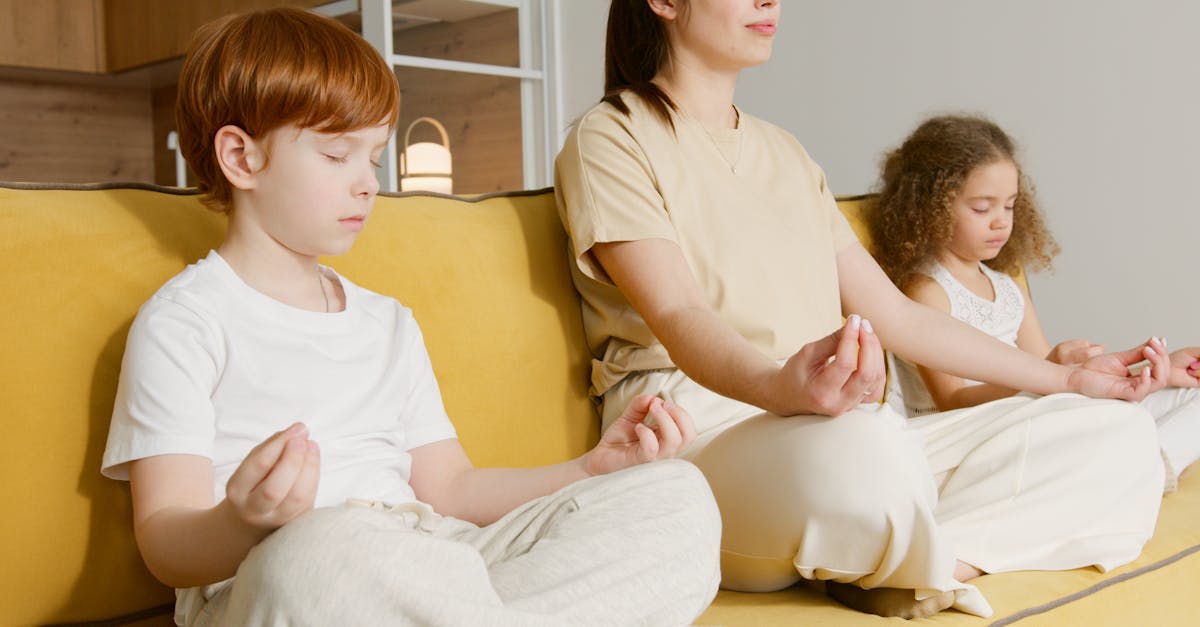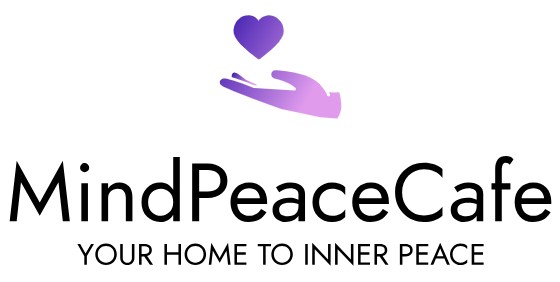Mindful Minis: Nurturing Young Minds with Headspace’s Meditation

Welcome to the fascinating world of kids’ meditation! In today’s fast-paced, technology-driven society, where stress and distractions abound, the importance of mental wellness for children cannot be emphasized enough. This article delves deep into the scientific foundation and remarkable effects of Headspace’s meditation program designed specifically for kids, offering a unique insight into the rapidly growing field of child-friendly mindfulness practices. We’ll explore the rise of mindfulness in kids, the neurological benefits for young practitioners, and the implications for parents and educators. Let’s unravel the science behind understanding Headspace’s Meditation for Kids and discover how it’s shaping the future of childhood mental health.
1. The Rise of Mindfulness in Kids
The Rise of Mindfulness in Kids: The growing importance of mindfulness in children’s mental health has sparked a revolution in how we perceive and prioritize the well-being of our little ones. Children today face a plethora of challenges, from navigating school pressures to coping with the digital world, all of which can impact their emotional and mental equilibrium. Recognizing this, parents, educators, and mental health professionals are embracing mindfulness as a powerful tool to equip kids with the skills they need to thrive. Mindfulness practices, once exclusively associated with adults, have found their way into the lives of children, offering a path to resilience, self-awareness, and emotional regulation. Today, it’s not just about helping kids excel academically, but also ensuring their holistic development, including mental and emotional well-being.
The Need for Child-Friendly Meditation
The Need for Child-Friendly Meditation: Understanding the necessity of promoting mental wellness in children is crucial in today’s complex and fast-paced world. As kids encounter an array of stressors, from academic pressures to the impact of social media, it’s become increasingly evident that nurturing their mental and emotional well-being is paramount. Child-friendly meditation offers a compelling solution to equip kids with essential tools for managing emotions, fostering resilience, and nurturing a positive mindset. Unlike traditional meditation, child-friendly approaches are tailored to capture young minds through engaging, interactive methods that align with their natural inclinations and energy.
Neuroscience in Child Development
Neuroscience in Child Development: Exploring the impact of mindfulness practices on young brains opens a door to understanding how these techniques can profoundly shape a child’s cognitive and emotional growth. Recent studies have shown that mindfulness practices, when introduced at a young age, can have a remarkable impact on brain development. These practices stimulate various parts of the brain associated with emotional regulation, empathy, and decision-making, laying a strong foundation for children’s overall well-being. Through neuroscientific research, we are uncovering the intricate ways in which mindfulness shapes the neural pathways, fostering not just cognitive abilities, but also emotional resilience.
2. A Closer Look at Headspace’s Approach

A Closer Look at Headspace’s Approach: When examining the unique strategies and scientific foundation of Headspace’s meditation program for kids, we uncover a world of innovation that seamlessly combines mindfulness with child-friendly engagement. Headspace’s approach recognizes that kids require specialized techniques to capture their imaginations and sustain their interest. By integrating elements such as storytelling, playful animations, and interactive exercises, Headspace ensures that children not only learn meditation but also enjoy the process. Moreover, the scientific foundation of their program is built on extensive research into child development, incorporating age-appropriate mindfulness activities that cater to the specific needs of young minds.
Customized Mindfulness for Kids
Customized Mindfulness for Kids: Adapting meditation techniques to suit the needs and habits of children represents a pivotal shift in how we approach their mental well-being. Children have their own unique way of perceiving and interacting with the world, and it’s essential to tailor mindfulness practices accordingly. This tailored approach involves incorporating elements of play, creativity, and exploration, ensuring that meditation becomes an enjoyable and enriching experience for kids. By embracing customized mindfulness, we not only acknowledge the individuality of each child but also empower them to develop coping mechanisms that resonate with their personal inclinations and emotional landscapes. This approach fosters an early appreciation for self-care and mental wellness, instilling lifelong skills that can support them through various life challenges.
Scientific Integration in Program Design
Scientific Integration in Program Design: The fusion of neuroscientific research and practical applications for young minds demonstrates an exciting union between academic insights and hands-on approaches. By blending the latest findings in neuroscience with practical, child-friendly applications, programs are able to create an environment that not only supports children in their mental and emotional development but also engages them in a manner that’s both enjoyable and effective. This integration ensures that kids are not only benefiting from evidence-based techniques but are also immersed in experiences that resonate with their natural inclinations and behaviors. As a result, this scientific integration in program design is pivotal in creating a seamless, nurturing space where kids can thrive mentally and emotionally.
3. Neurological Benefits for Young Practitioners
Neurological Benefits for Young Practitioners: Understanding the cognitive and emotional advantages of meditation for kids, supported by neuroscience, unlocks a treasure trove of insights into how these practices shape young minds. Studies have revealed that regular meditation in children can lead to improved attention, better emotional regulation, and enhanced empathy. Neuroscientific research highlights the positive impact of mindfulness practices on brain plasticity, suggesting that these activities can rewire the neural pathways associated with emotional processing and cognitive functions. Resultantly, children who engage in meditation not only experience a calmer, more focused mind but also show an increased capacity for compassion and understanding.
Cultivating Emotional Intelligence
Cultivating Emotional Intelligence: Mindfulness significantly contributes to emotional regulation and empathy in children, fostering their overall emotional intelligence. By engaging in mindfulness activities, kids learn to identify and manage their emotions effectively, paving the way for a greater sense of self-awareness and the ability to navigate complex emotional landscapes. Moreover, through mindfulness, children develop a deeper understanding of empathy, allowing them to relate to others’ experiences and emotions with heightened sensitivity and compassion. These essential skills not only benefit their individual growth but also lay a solid foundation for cultivating harmonious relationships and a positive social environment.
Enhancement of Cognitive Function
Enhancement of Cognitive Function: Meditation plays a significant role in enhancing children’s cognitive abilities, particularly concentration and learning capacities. Studies have illustrated that regular practice of mindfulness can lead to improved attention spans, enhanced memory retention, and better academic performance. By engaging in meditation, children develop the ability to focus on specific tasks for longer periods, a skill that is invaluable in academic settings and beyond. Furthermore, mindfulness has been linked to improved information processing, problem-solving, and creative thinking, indicating a holistic positive impact on cognitive function.
4. Implications for Parents and Educators
Implications for Parents and Educators: Insights and guidance for adults supporting children practicing meditation bring about a profound shift in how we perceive and nurture the mental wellness of our young ones. With a growing understanding of the neuroscientific and clinical psychological underpinnings of meditation for kids, parents and educators can play a pivotal role in not only introducing these practices but also reinforcing their benefits in day-to-day life. By integrating mindfulness into parenting and educational approaches, adults can create supportive environments that encourage children to embrace and sustain these beneficial practices. Moreover, insights into neuroscience and clinical psychology provide valuable guidance on recognizing children’s individual needs and responding effectively to nurture their mental well-being.
Integrating Mindfulness in Education
Integrating Mindfulness in Education: The role of schools and other educational institutions in promoting mindfulness practices heralds a significant shift in how we approach children’s holistic development. By incorporating mindfulness into the educational framework, schools and institutions not only prioritize academic excellence but also emphasize the well-being of their students. This integration fosters an environment that nurtures emotional resilience, self-awareness, and empathy, all of which are vital for children’s overall growth. Additionally, by embracing mindfulness, educational institutions provide children with lifelong skills that go beyond academic prowess, equipping them to navigate life’s challenges with poise and confidence.
Supporting Children’s Mental Wellbeing
Supporting Children’s Mental Wellbeing: As parents and educators, it’s crucial to foster a supportive environment that enables children to embrace mindful activities in their daily routines. Simple practices, such as engaging in mindful breathing exercises, encouraging quiet reflection, and even integrating short moments of gratitude into the day, can make a significant impact on a child’s mental wellbeing. Moreover, incorporating mindfulness into playtime activities or academic lessons can further reinforce its importance, making it a natural and integral part of their lives. By ensuring that mindfulness isn’t seen as a task but rather as an enjoyable and enriching experience, parents and educators can create a positive association that encourages children to embrace these practices with openness and enthusiasm.
How can mindfulness benefit children’s mental health?
Mindfulness can benefit children’s mental health by promoting emotional regulation, reducing stress and anxiety, improving attention and focus, and fostering empathy and compassion. It equips children with valuable skills to navigate various challenges and develop a greater sense of overall well-being.
What are some practical ways to introduce mindfulness to children?
Practical ways to introduce mindfulness to children include engaging in mindful breathing exercises, encouraging moments of gratitude, integrating mindfulness into daily activities, and incorporating age-appropriate meditation techniques. Additionally, storytelling and interactive games can make mindfulness more accessible and enjoyable for children.
How can parents and educators support children in practicing mindfulness?
Parents and educators can support children in practicing mindfulness by leading by example, creating a nurturing environment that promotes open communication, and integrating mindfulness activities into daily routines. It’s essential to approach mindfulness with a positive and supportive attitude, fostering a love for these practices in children.




